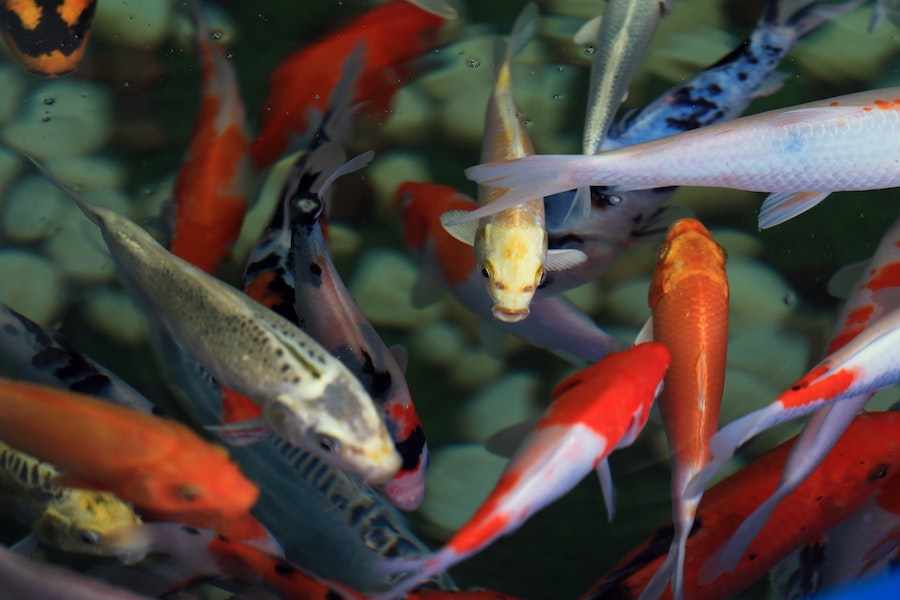Diving into the intriguing world of underwater welding not only requires nerves of steel but also a keen interest in the financial aspects of this high-risk profession. Aspiring welders often wonder, “How much does underwater welding pay?” This question’s answer isn’t straightforward, as several factors come into play. From experience and location to project complexity and industry demand, understanding these variables is crucial. In this article, we will delve into the depths of underwater welding salaries, exploring the factors that influence earnings and revealing the potential for a rewarding career beneath the waves.
How Much Does Underwater Welding Pay?
Underwater welding salaries can vary widely, but on average, underwater welders can earn anywhere from $25,000 to $90,000 or more annually. Factors like experience, location, and project complexity heavily influence pay rates. Experienced professionals and those in high-risk or specialized roles tend to earn more in this demanding profession.
The Basics Of Underwater Welding
Underwater welding, a fascinating and high-stakes profession, plays a pivotal role in the construction, maintenance, and repair of structures submerged beneath the waves. This specialized field demands a unique set of skills and expertise, as welders work in an environment where pressure, darkness, and the surrounding elements pose significant challenges.
There are two primary methods of underwater welding: wet welding and dry welding. Wet welding, the more common of the two, involves welding in the water itself, with the welder submerged. While wet welding is less expensive and more accessible, it requires exceptional skill due to the inherent difficulties of working underwater. On the other hand, dry welding is carried out within a sealed chamber called a hyperbaric welding habitat, which provides a dry and controlled environment for welding. Dry welding is primarily used for deep-sea or critical welding tasks.
Regardless of the method used, underwater welding demands rigorous training and certification. Aspiring underwater welders typically begin their journey by becoming certified commercial divers. They learn the fundamentals of diving, underwater safety procedures, and the operation of diving equipment. Subsequently, they acquire specialized training in welding techniques, including proper electrode handling, arc welding, and the intricacies of welding in a waterlogged environment.
Underwater welders must be physically fit, mentally sharp, and capable of remaining calm under high-pressure conditions. They work in diverse environments, from shipwrecks to offshore oil rigs, and their tasks encompass various objectives, such as repairing pipelines, ship hulls, and underwater structures. In this perilous profession, a deep understanding of welding principles, coupled with the ability to adapt to the unpredictable challenges of the underwater world, is paramount.
Factors Influencing Underwater Welding Salaries
Several factors significantly influence the salaries of underwater welders, making it a profession with substantial income variability. Understanding these factors is crucial for both aspiring and experienced underwater welders:
- Experience and Skill Level: Experience plays a pivotal role in determining underwater welding salaries. Entry-level welders typically earn less than those with several years of experience. As welders gain proficiency and a track record of successful underwater projects, they become more valuable to employers, leading to higher pay rates.
- Location: Geographic location has a substantial impact on underwater welding salaries. Coastal regions and areas with a high demand for underwater welders, such as those near major ports, offshore drilling sites, or underwater infrastructure, often offer more competitive wages. Conversely, inland or less populated areas may have lower pay rates due to limited job opportunities.
- Employer and Industry: The type of employer and the industry in which underwater welders work can significantly affect their earnings. Commercial diving companies, underwater construction firms, and offshore oil and gas companies typically offer competitive salaries. Government contracts related to underwater projects may also yield stable income opportunities.
- Project Complexity and Hazards: The complexity and risk level of underwater welding projects can influence pay rates. Highly intricate or hazardous projects, such as deep-sea welding in extreme depths or underwater salvage operations, often command higher compensation due to the specialized skills and risks involved.
- Certifications and Qualifications: Underwater welders with additional certifications and qualifications, such as certified hyperbaric welding or specialized welding techniques, may receive higher pay. These additional qualifications enhance their capabilities and make them more valuable to employers.
- Union Membership: Membership in underwater welding or commercial diving unions can provide access to better-paying job opportunities and standardized wage scales. Unionized underwater welders often benefit from negotiated pay rates and better working conditions.
- Market Demand: The overall demand for underwater welders in the job market can influence salaries. In times of high demand, salaries tend to rise as employers compete for experienced professionals. Conversely, during economic downturns or reduced project activity, salaries may stagnate or decrease.
- Negotiation Skills: A welder’s ability to negotiate their pay and benefits can also impact their earnings. Strong negotiation skills can lead to more favorable compensation packages, including higher hourly rates, bonuses, or better working conditions.
- Continuing Education: Underwater welders who invest in ongoing education and training to stay up-to-date with industry advancements and safety protocols may be more competitive in the job market, which can translate to higher earning potential.
- Networking and Reputation: Building a strong professional network and establishing a reputation for reliability and expertise can lead to higher-paying job opportunities through referrals and word-of-mouth recommendations.
Tips For Aspiring Underwater Welders
Aspiring underwater welders should prepare themselves for a challenging yet rewarding career beneath the waves. Here are some essential tips to help you embark on this journey:
Get Proper Education and Training:
Start by becoming a certified commercial diver. Enroll in reputable commercial diving schools that offer comprehensive training in underwater welding techniques.
Pursue welding certifications, such as those provided by organizations like the American Welding Society (AWS). These certifications demonstrate your competence as a welder.
Build Strong Physical Fitness:
Underwater welding is physically demanding. Maintain excellent physical fitness to handle the rigors of the job. Regular exercise and a healthy lifestyle are crucial.
Hone Your Welding Skills:
Practice welding in dry environments to build a solid foundation of welding skills before attempting underwater welding. Master different welding techniques, including stick welding and TIG welding.
Safety First:
Prioritize safety above all else. Underwater welding is inherently risky. Learn and adhere to strict safety protocols and guidelines to protect yourself and your team.
Gain Diving Experience:
Log significant diving hours to become a proficient diver. Experience in various underwater conditions will make you more adaptable and confident in your abilities.
Obtain the Right Equipment:
Invest in high-quality diving and welding equipment. Your gear should be well-maintained and reliable to ensure safety and efficiency on the job.
Network and Seek Mentorship:
Connect with experienced underwater welders and seek mentorship. Their insights and advice can be invaluable in navigating the industry and honing your skills.
Consider Specialization:
Explore specialized niches within underwater welding, such as deep-sea welding, offshore oil rig maintenance, or underwater salvage. Specialization can lead to higher earning potential.
Stay Current with Technology:
Keep up-to-date with the latest welding and diving technologies and equipment. Advancements in the field can enhance your efficiency and safety.
Conclusion
In conclusion, underwater welding is a demanding yet financially rewarding profession that offers unique challenges and opportunities. Earnings in this field can vary widely, influenced by factors like experience, location, and project complexity. Aspiring underwater welders should carefully consider these factors, prioritize safety, invest in training, and stay adaptable to industry advancements. With dedication and the right approach, individuals can dive into a career that not only pays well but also offers a thrilling underwater adventure.
FAQs
What Is The Average Salary For An Underwater Welder?
The average salary for an underwater welder varies from $25,000 to $90,000 or more per year, depending on factors like experience and location.
How Long Does It Take To Become An Underwater Welder?
It typically takes 1-2 years to become a certified commercial diver and gain the necessary training for underwater welding.
Is Underwater Welding A Dangerous Profession?
Yes, underwater welding is considered high-risk due to the challenging underwater environment and potential hazards. Safety precautions are paramount.
Are There Specialized Certifications For Underwater Welding?
Yes, organizations like the American Welding Society (AWS) offer certifications specifically for underwater welding, demonstrating proficiency in the field.
Can Underwater Welders Specialize In Certain Areas?
Yes, underwater welders can specialize in areas like deep-sea welding, offshore maintenance, or underwater salvage, potentially leading to higher earning potential.








